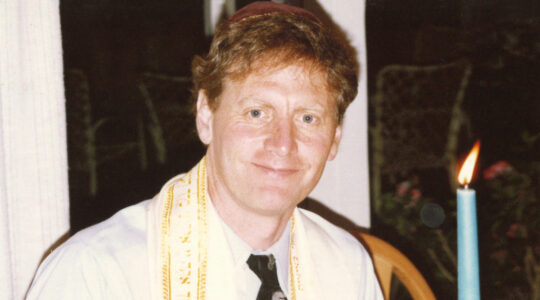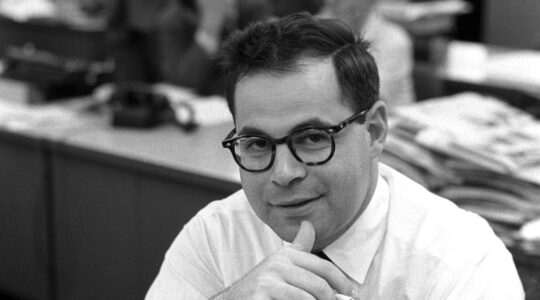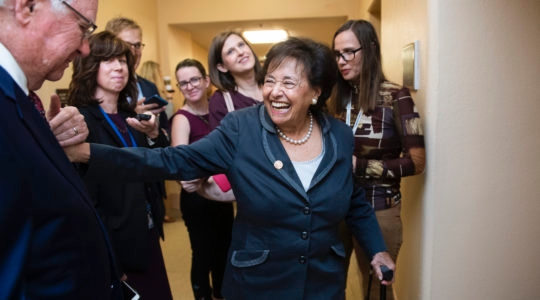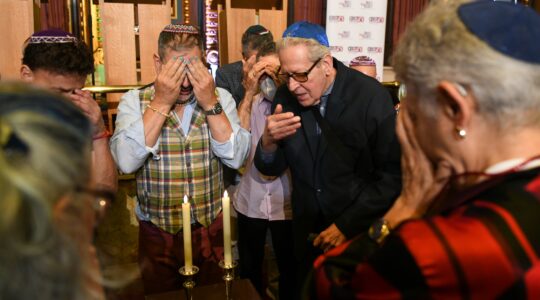(JTA) — Rabbi David Posner, a spiritual leader at the flagship Reform Temple Emanu-El in New York City for four decades, has died.
Posner, who retired from active work at New York City’s first Reform congregation in 2012 after serving 10 years as its senior rabbi, died Friday from complications of Alzheimer’s disease. He was 70.
Following his ordination from Hebrew Union College-Jewish Institute of Religion in Cincinnati in the early 1970s — the Brooklyn native told his parents when he was 10 that he wanted to be a rabbi, according to The New York Times — he was asked to join the rabbinical staff at Temple Emau-El and never left the Manhattan congregation. He was named senior rabbi in 2002, a position he held until his retirement, and was senior rabbi emeritus at the time of his passing.
In 2008, Posner was awarded the International Humanitarian Award from the World Union for Progressive Judaism.
He served as a member of the board of governors of HUC from 2005 to 2015.
“The death of Rabbi David Posner leaves a gaping hole in the heart of the Jewish people and our community,” Rabbi David Ellenson, HUC’s interim president, said in a statement. “His brilliance, his love of scholarship and the arts, his sensitivity and care for others, his love for the State of Israel, his leadership of Congregation Emanu-El, in the Reform Movement, and at the Hebrew Union College-Jewish Institute of Religion, and his contributions to Klal Yisrael were unsurpassed.”
Posner developed relationships with political and faith leaders. He was friends with New York Gov. Eliot Spitzer and mayors Ed Koch and Michael Bloomberg, and had close ties to Cardinals O’Connor, Egan and Dolan, according to the HUC website.
He met his wife, Sylvia, when he was 12 and married her when he was 21. She worked for 43 years as the assistant to the president of HUC.
An accomplished pianist, Posner earned a doctorate in piano pedagogy from Columbia University in 1988. His doctoral thesis, “Reviving a Lost Art — Piano Music of Russian-Jewish Origin” centered on the modern Jewish art music composed in St. Petersburg, the cultural heart of czarist Russia during the first decade of the 20th century.
While attending HUC, he specialized in the study of Semitic languages, and he received the Ralph Lazarus Prize for ranking first in his class.
JTA has documented Jewish history in real-time for over a century. Keep our journalism strong by joining us in supporting independent, award-winning reporting.





